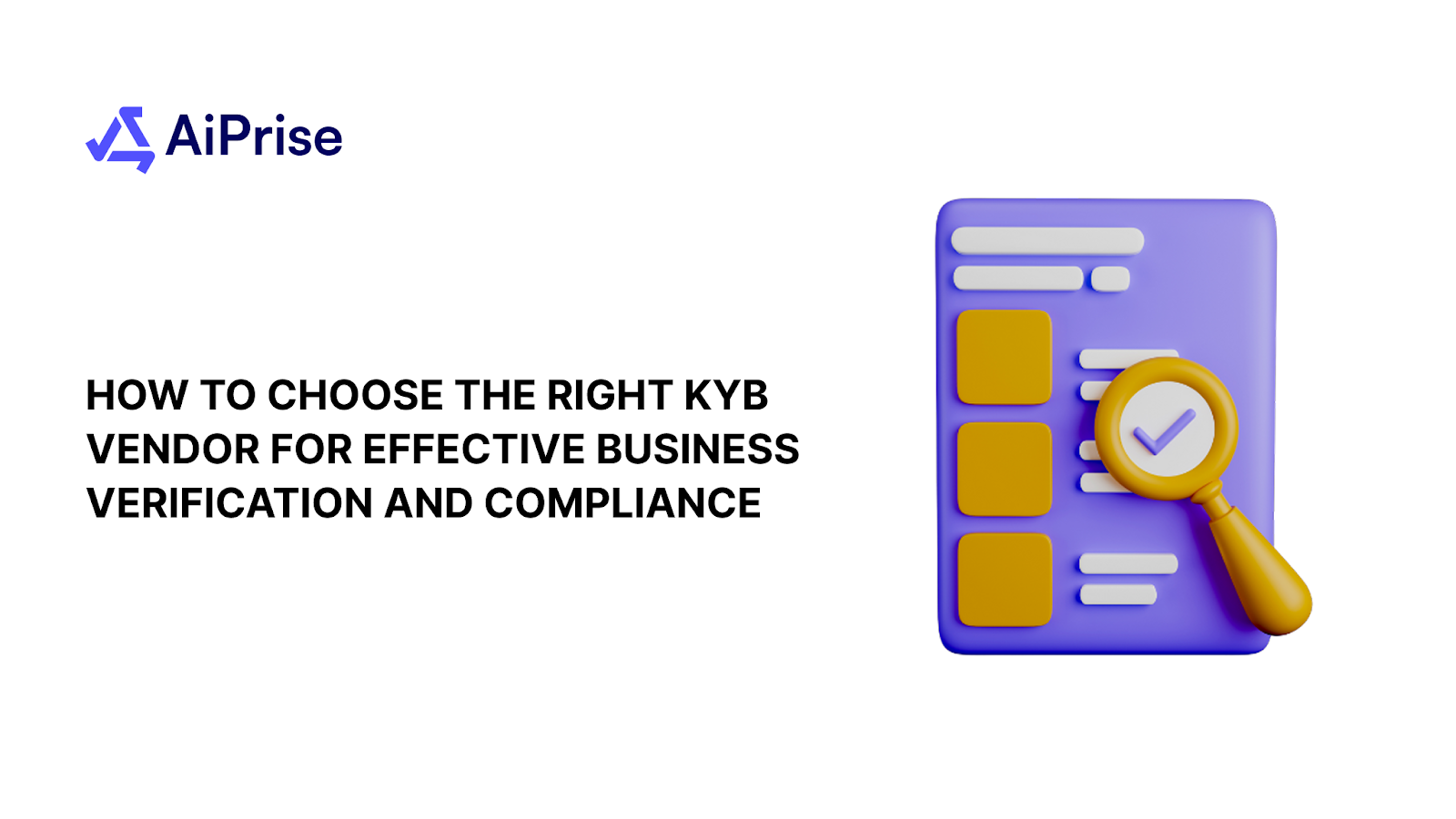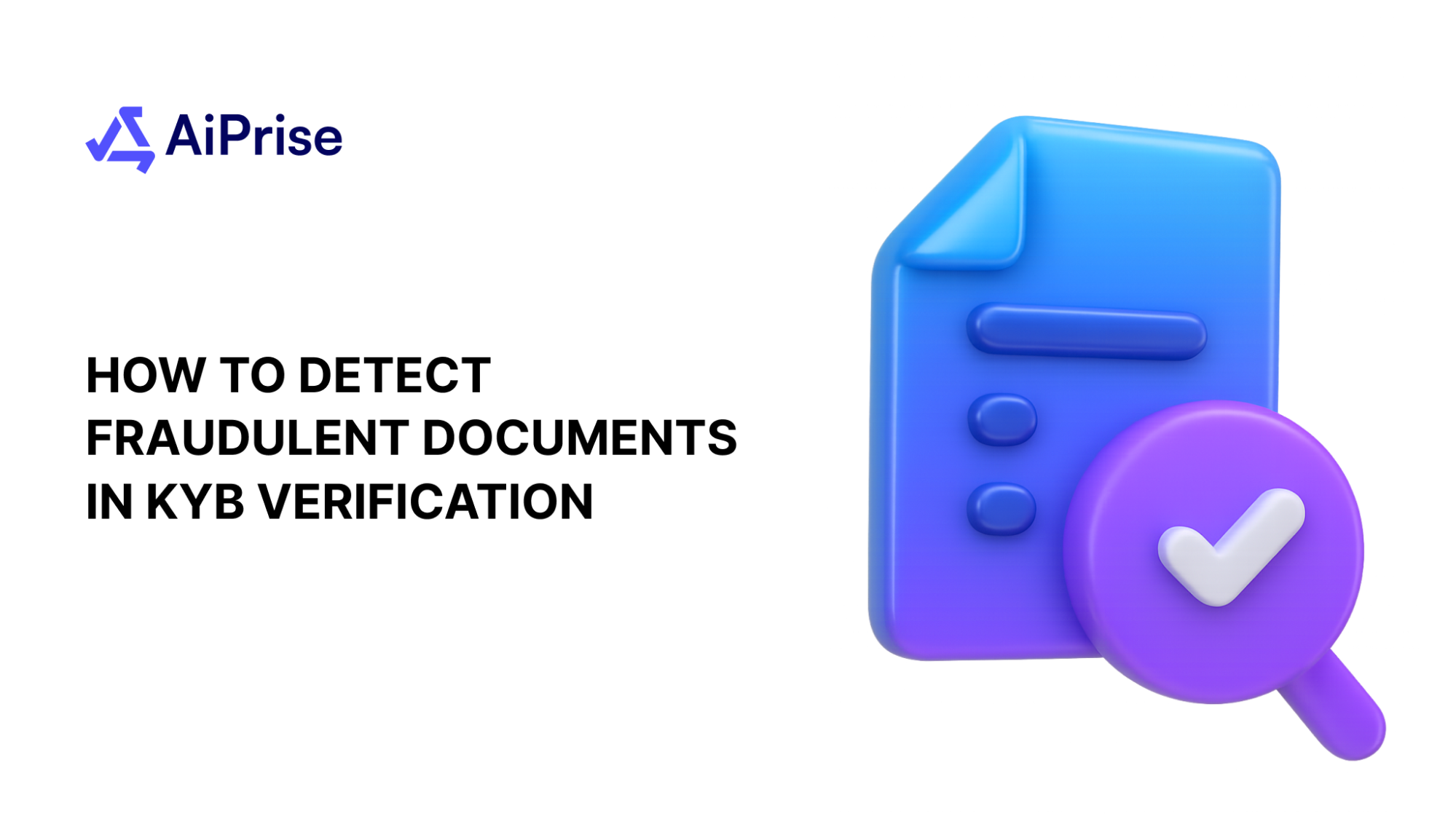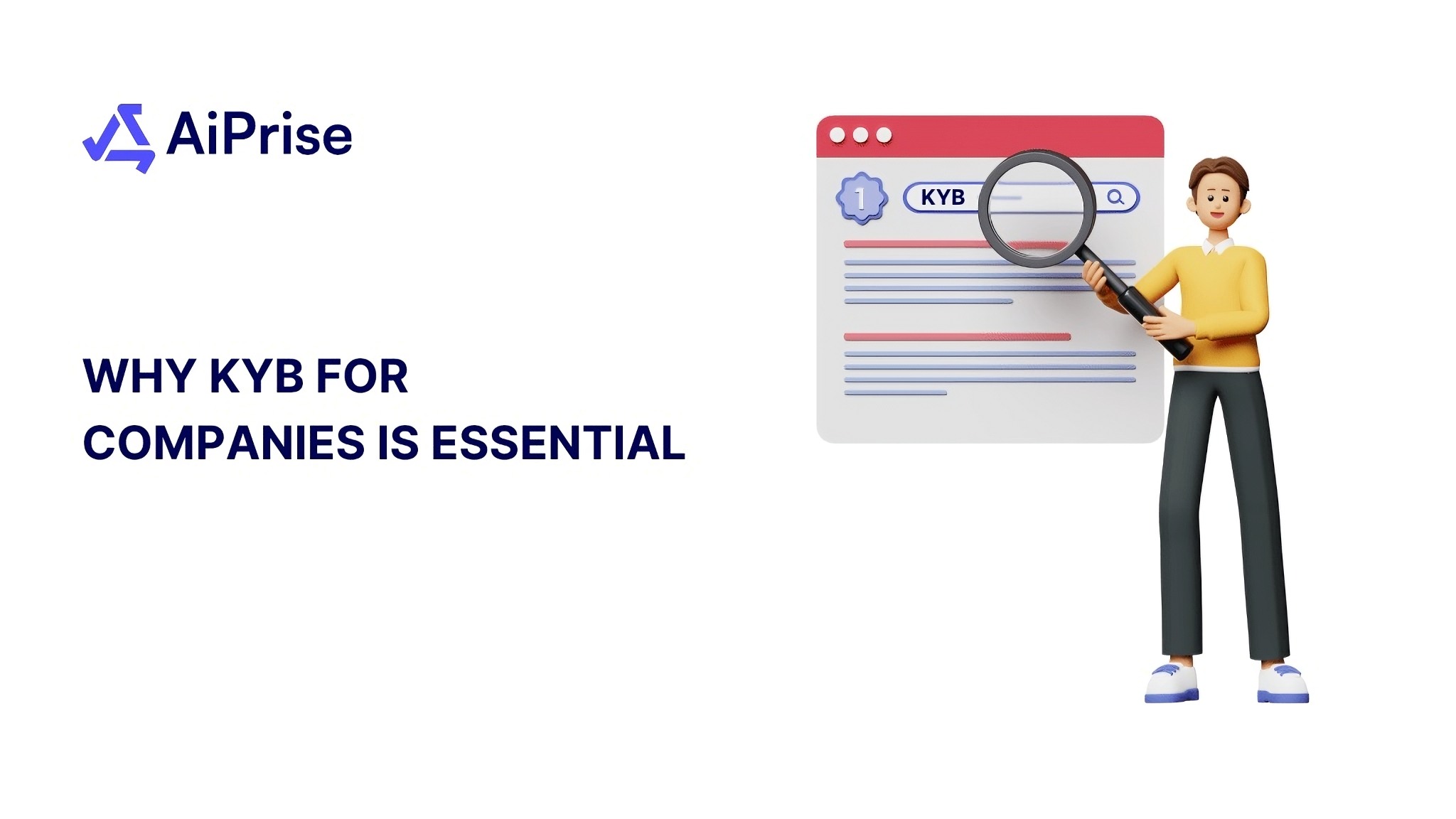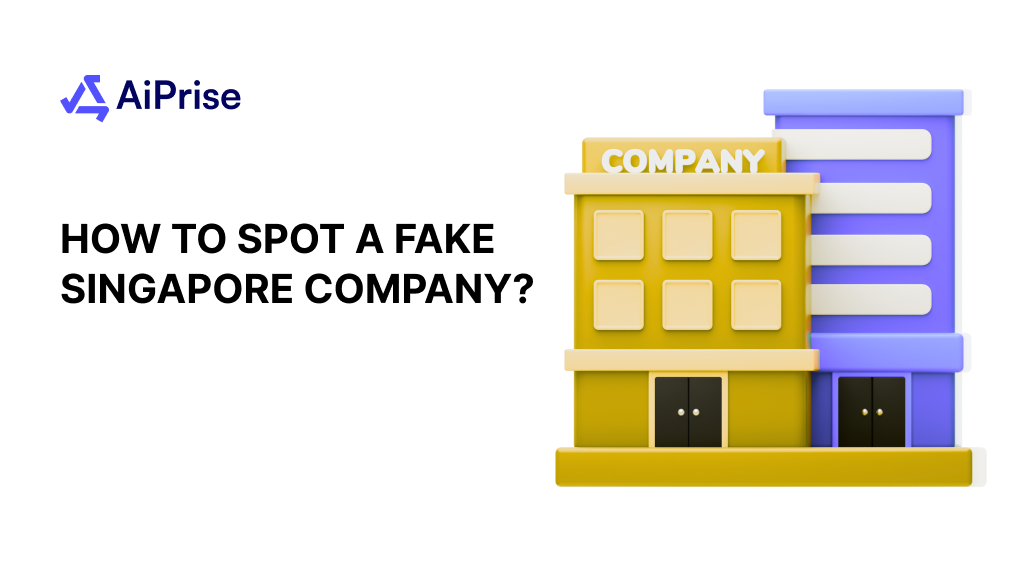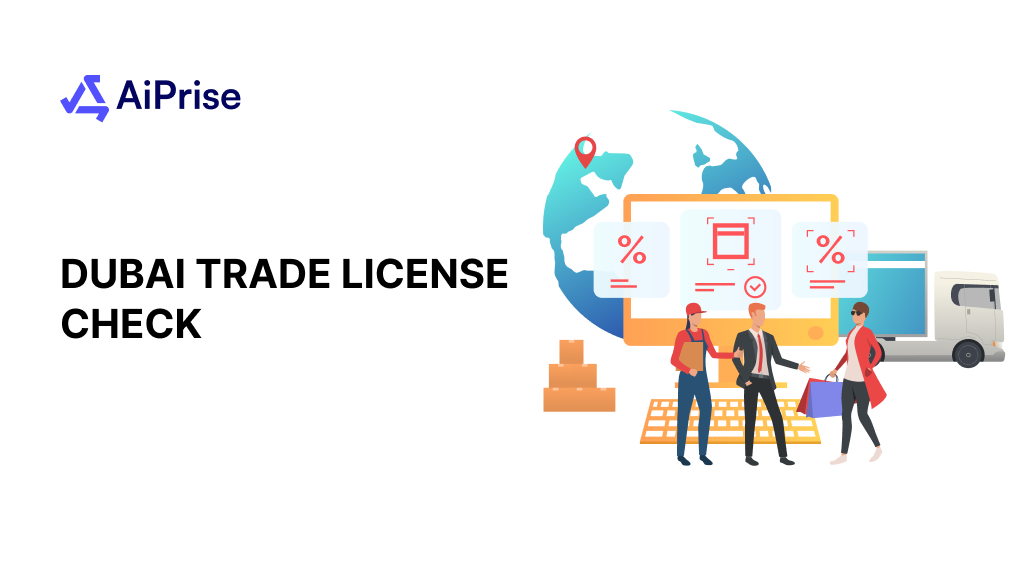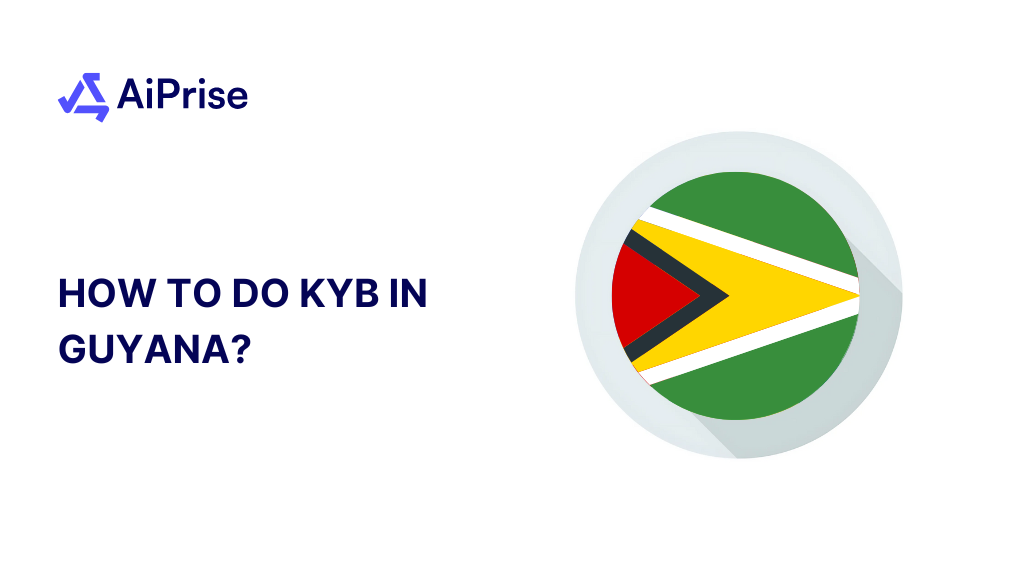AiPrise
12 mins read
June 30, 2025
What Is Business Identity Verification?

Key Takeaways










As a business owner, you likely understand the importance of trust in today’s marketplace. When engaging with other companies, whether for partnerships, payments, or service agreements, it’s essential to ensure their legitimacy.
In a world where fraud is becoming increasingly sophisticated and regulatory landscapes are continuously evolving, business identity verification has emerged as a critical component of effective risk management. This process ensures entities you interact with are legally registered, compliant, and not involved in illicit activities, helping your business avoid costly mistakes and adhere to crucial regulations like KYB and AML.
Fortunately, modern technology, particularly artificial intelligence (AI) and machine learning (ML), has transformed business verification, making the process faster, more accurate, and inherently more secure.
This blog will explore what business identity verification entails, why it's indispensable for modern businesses, and how utilizing advanced technology can streamline this vital process.
What Is Business Identity Verification?
Business identity verification is the process of confirming the legitimacy of a business entity. It ensures that a company is operating lawfully and is not involved in any fraudulent activity. This process is essential for businesses across various sectors, especially in industries that are heavily regulated, such as finance, cryptocurrency, and e-commerce.
In simple terms, business identity verification is designed to protect everyone involved: from the business itself to its customers, partners, and even the wider economy. With the advancement of deceptive practices, the need for accurate and reliable verification methods has become paramount. Effective identity verification enables businesses to minimize risk, comply with regulations, and establish trust with their stakeholders.
Why Is Business Identity Verification Important?
Business identity verification plays a crucial role in securing the integrity of transactions and interactions. It serves several key purposes that are vital to maintaining a company's safety and reputation.
The importance of business identity verification can be summarized as follows:
- Fraud Prevention: Identity verification ensures that businesses only engage with legitimate entities, reducing the risk of entering into partnerships with fraudulent companies. This helps in avoiding potential financial losses, legal complications, and reputational damage.
- Regulatory Compliance: Compliance with regulatory frameworks such as Know Your Customer (KYC) and Anti-Money Laundering (AML) is a core function of identity verification. These regulations are crucial for preventing illicit activities, including money laundering and terrorist financing.
- Building Trust: A reliable and transparent verification process instills confidence in customers and business partners. It assures them that they are engaging with a trustworthy and legitimate company, which is essential for fostering long-term, sustainable relationships.
- Risk Management: By verifying business identities, companies reduce their exposure to various risks, such as financial or legal liabilities, and ensure they are dealing with compliant and reputable entities.
With a clear understanding of why business identity verification is essential, it's important to explore the different types of verification processes available to ensure your business is engaging with legitimate entities.
Types of Business Identity Verification

There are various types of verification processes that businesses may need to undergo, depending on the nature of their industry and the specific regulatory requirements they must comply with.
The primary forms directly related to verifying a business's identity and its associated individuals include the following:
- KYC (Know Your Customer) Verification
KYC verification is commonly used to verify the identity of individuals. In the context of business verification, KYC ensures that businesses can authenticate the key individuals they are working with, such as beneficial owners, directors, or authorized representatives. This is a crucial step in the fight against fraud, ensuring that businesses do not engage with individuals who may pose a risk to their operations.
- KYB (Know Your Business) Verification
KYB verification builds upon the concept of KYC, applying it to businesses. Here, the process involves confirming the legitimacy of the company itself by validating its registration details, ownership structure, and legal standing. This ensures that a business is not a front for fraudulent activities.
Having explored the different types of business identity verification, it’s crucial to understand the step-by-step process involved in carrying out these verifications effectively.
Step-By-Step Guide to Verifying Business Identity
The process of verifying a business identity typically follows a series of well-defined steps:
- Data Collection: Begin by gathering essential information about the business. This includes core legal documents, such as corporate registration records, articles of incorporation, proof of address, and ownership details. At this stage, initial screening against internal watchlists or basic public records may occur.
- Information Verification: Once the necessary data is collected for KYC and KYB, it is cross-checked against reliable sources, such as public databases and legal resources.
Key methods of verification include the following:
- Document verification using OCR and image recognition to validate IDs and business licenses.
- Biometric verification with fingerprints or facial recognition for identity confirmation.
- Database checks that cross-reference sanction lists and criminal databases.
- AI and machine learning technologies help process large data sets to quickly identify discrepancies and patterns, ensuring compliance and reducing fraud risks
- Risk Assessment and Compliance Checks: After the business data has been verified, a risk assessment is conducted. The goal is to identify any potential risks based on factors like the company’s geographic location, ownership structure, and financial history. The business will also undergo a compliance check to ensure it adheres to the relevant regulatory standards.
- Ongoing Monitoring: Verification isn’t a one-time task. Businesses must regularly monitor their identity and operations to remain compliant with evolving regulations and ensure that no new risks have emerged.
After understanding the verification process, it's essential to know how to identify non-legitimate businesses, which helps you avoid potential risks when engaging with partners or clients.
How to Identify Non-Legitimate Businesses?
Identifying non-legitimate businesses is crucial to protect your organization from fraud and risk. Key indicators of a potentially fraudulent business are as follows:
- Absence of Company Number: Legitimate businesses are typically registered and possess an identifying number, such as an Employer Identification Number (EIN) or a registered company number.
- Lack of Physical Business Address: A credible business should have a verifiable physical address.
- Missing Privacy Policy: Established businesses usually provide a privacy policy on their websites; its absence can be a warning sign.
- Complex or Opaque Company Structures: Overly complicated ownership structures may be designed to obscure the ultimate beneficial ownership, raising red flags.
- Inconsistent or Unclear Financial Transactions: Unusual or undocumented financial activities can indicate fraudulent operations.
- No Established Online Presence: A legitimate business often has a consistent and professional online presence.
- Negative Reviews or Complaints: A lack of positive reviews or a history of complaints can be indicative of a non-legitimate business.
By being vigilant and conducting thorough due diligence, you can mitigate the risks associated with engaging non-legitimate businesses.
Once you've identified potential red flags, the next step is understanding who exactly needs business identity verification to protect your business from these risks.
Who Needs Business Identity Verification?

Business identity verification is essential for a wide range of industries. However, certain sectors are particularly reliant on ensuring that the businesses they deal with are legitimate and trustworthy.
Here’s a look at who needs business identity verification the most:
- Financial Institutions: Banks and other financial service providers must verify businesses to comply with regulations such as KYC (Know Your Customer) and AML (Anti-Money Laundering). They must ensure that their clients are not involved in criminal activities such as money laundering or terrorist financing.
- Payment Providers: Payment processors must verify businesses before processing payments to prevent fraud and ensure that the businesses are authorized to receive funds. This is especially important when dealing with international transactions or cryptocurrencies, where the risk of fraud is high.
- Cryptocurrency Platforms: Cryptocurrency exchanges must verify the identities of businesses to comply with financial regulations and prevent illicit activities, such as money laundering. Verifying businesses in this sector also protects users from fraudulent exchanges or malicious actors.
- E-Commerce and Retail: E-commerce platforms and retailers often need to verify their suppliers or partners to ensure the legitimacy of the businesses with which they are working. This ensures that the supply chain remains secure and transparent.
- Insurance Providers: Insurance companies must verify businesses to assess risk and provide suitable coverage accurately. Verification helps mitigate the risk of insuring fraudulent or non-compliant businesses.
- Legal and Consulting Firms: Law firms and consultants must verify the identities of their clients to prevent inadvertently representing fraudulent or illegal entities.
Ultimately, any industry that involves financial transactions, partnerships, or the handling of sensitive data can benefit from business identity verification. It not only helps ensure compliance but also protects your business and customers from risk.
With a clear understanding of who needs business identity verification, it’s important to recognize the challenges businesses face when trying to verify the legitimacy of other entities.
Challenges in Business Identity Verification
While business identity verification is essential, the process is not without its challenges. Businesses often face several obstacles that can make it difficult to verify other companies efficiently:
- Multiple Data Sources: Verifying a business often requires collecting data from several different sources, such as government records, financial statements, and third-party databases. Managing and cross-referencing these diverse data points can be time-consuming and complex.
- Evolving Regulations: Regulatory requirements can change frequently, particularly in industries such as finance and cryptocurrency. Keeping up with these changes and ensuring that your verification process remains compliant can be a challenging task.
- False Positives and Rejections: The risk of false positives, where legitimate businesses are mistakenly flagged as suspicious, can be a significant issue. This can delay transactions and create friction between business partners, leading to frustration.
- Delays in the Verification Process: Manual verification processes or reliance on outdated systems can lead to delays, especially when documents require review by multiple departments or external parties.
- Global Variations in Standards: Different countries have varying regulations and standards for business verification. Ensuring that your verification process works seamlessly across borders and complies with local laws can be a significant challenge, particularly for companies operating internationally.
Despite these challenges, the benefits of business identity verification far outweigh the difficulties. By utilizing the right technology and staying up-to-date with industry standards, businesses can effectively mitigate these risks.
While there are challenges in business identity verification, utilizing the right solutions can significantly streamline the process and ensure compliance—this is where AiPrise can make a difference.
How AiPrise Can Help You Verify Your Business

At AiPrise, we specialize in providing comprehensive business identity verification solutions to help businesses ensure compliance and mitigate risk. Here’s how we can assist you:
- Global KYC and KYB Verification: AiPrise offers advanced Know Your Customer (KYC) and Know Your Business (KYB) solutions, enabling you to quickly and accurately verify the identity of your business partners, customers, and suppliers, regardless of location.
- Real-Time Verification: Using AI-powered tools, we provide real-time business verification, ensuring that you always have up-to-date information about your partners and clients.
- AML Compliance: Our anti-money laundering (AML) solutions help screen businesses for potential involvement in financial crimes, and Compliance Copilot automates business verification, enhances due diligence, and streamlines sanctions screening to ensure accurate and efficient compliance.
- Seamless Integration: AiPrise's solutions are designed to integrate easily into your existing workflows, providing a smooth and efficient verification process without disrupting your operations.
- Regulatory Compliance Updates: We keep you informed about the latest regulatory changes, enabling you to adapt your verification processes as needed and ensure continued compliance with local and global standards.
- Scalability: Whether you're a small business or a large multinational corporation, AiPrise offers scalable solutions that grow with your needs. Our platform can handle the increasing volume and complexity of verification as your business expands.
By partnering with AiPrise, you can streamline your business verification process, reduce risk, and ensure that you are always working with legitimate and trustworthy entities.
Conclusion
Business identity verification is the first step toward safeguarding your business from risks while ensuring long-term success. With the rise in fraud and the tightening of regulatory standards, businesses must ensure that they have the right verification systems in place to stay compliant and secure.
Ensuring the legitimacy and security of your business and its operations not only protects you but also builds trust with your customers, partners, and stakeholders.
Curious about how AiPrise can elevate your business security and compliance? Book a Demo today and experience firsthand how our advanced AI-driven identity verification solutions can help safeguard your business.
FAQs
- What is business identity verification?
Business identity verification is the process of confirming the legitimacy and authenticity of a business entity. It involves verifying key details such as company registration, ownership structure, and financial standing to ensure the business is lawful and trustworthy.
- Why is business identity verification important?
It helps prevent fraud, money laundering, and other financial crimes. It also ensures that businesses comply with regulatory standards such as KYC (Know Your Customer) and AML (Anti-Money Laundering), reducing legal and financial risks.
- How does business identity verification work?
The process typically involves collecting business documents such as registration records, ownership information, and legal statements. This information is cross-checked against multiple trusted sources to verify its authenticity and confirm the business's legitimacy.
- What are KYC and KYB in business identity verification?
KYC (Know Your Customer) verifies the identity of individuals or customers a business works with, while KYB (Know Your Business) verifies the legitimacy and structure of the business itself. Both are essential for ensuring compliance with regulations and preventing fraud.
- What are the challenges in business identity verification?
Common challenges include handling fraudulent information, staying compliant with diverse international regulations, maintaining data privacy, and balancing a thorough verification process with a seamless customer experience.
You might want to read these...

AiPrise’s data coverage and AI agents were the deciding factors for us. They’ve made our onboarding 80% faster. It is also a very intuitive platform.










.jpg)






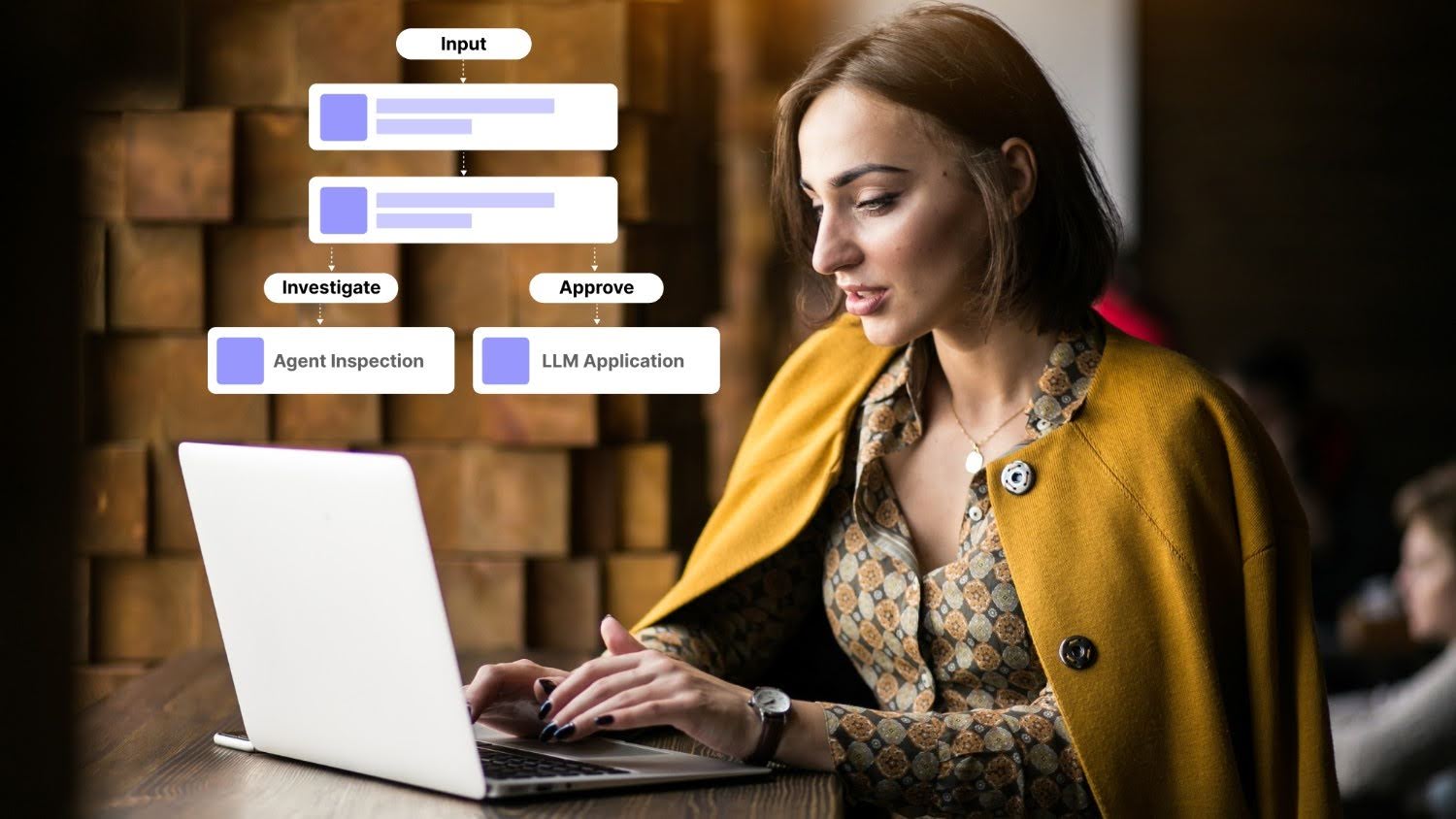
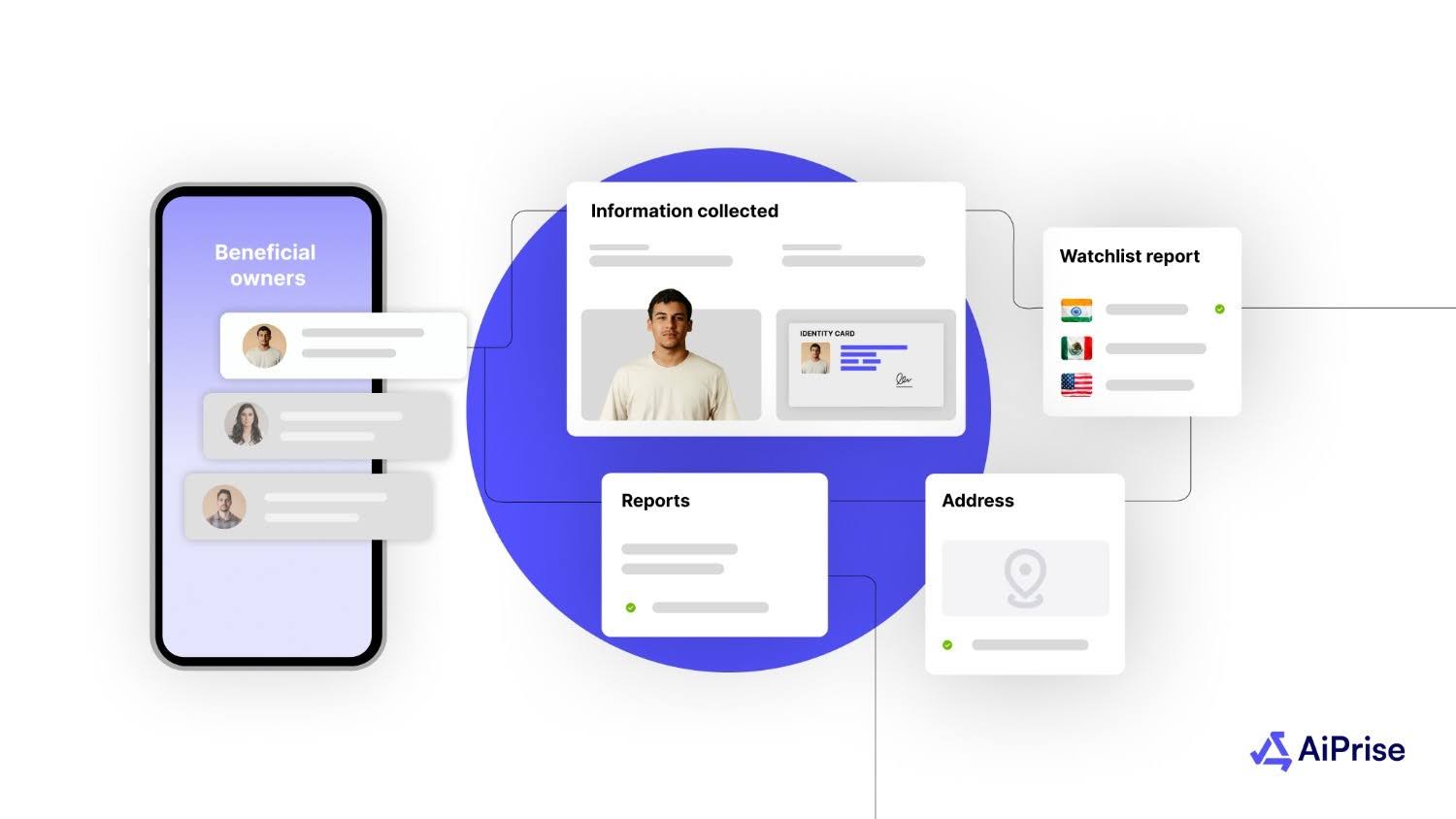
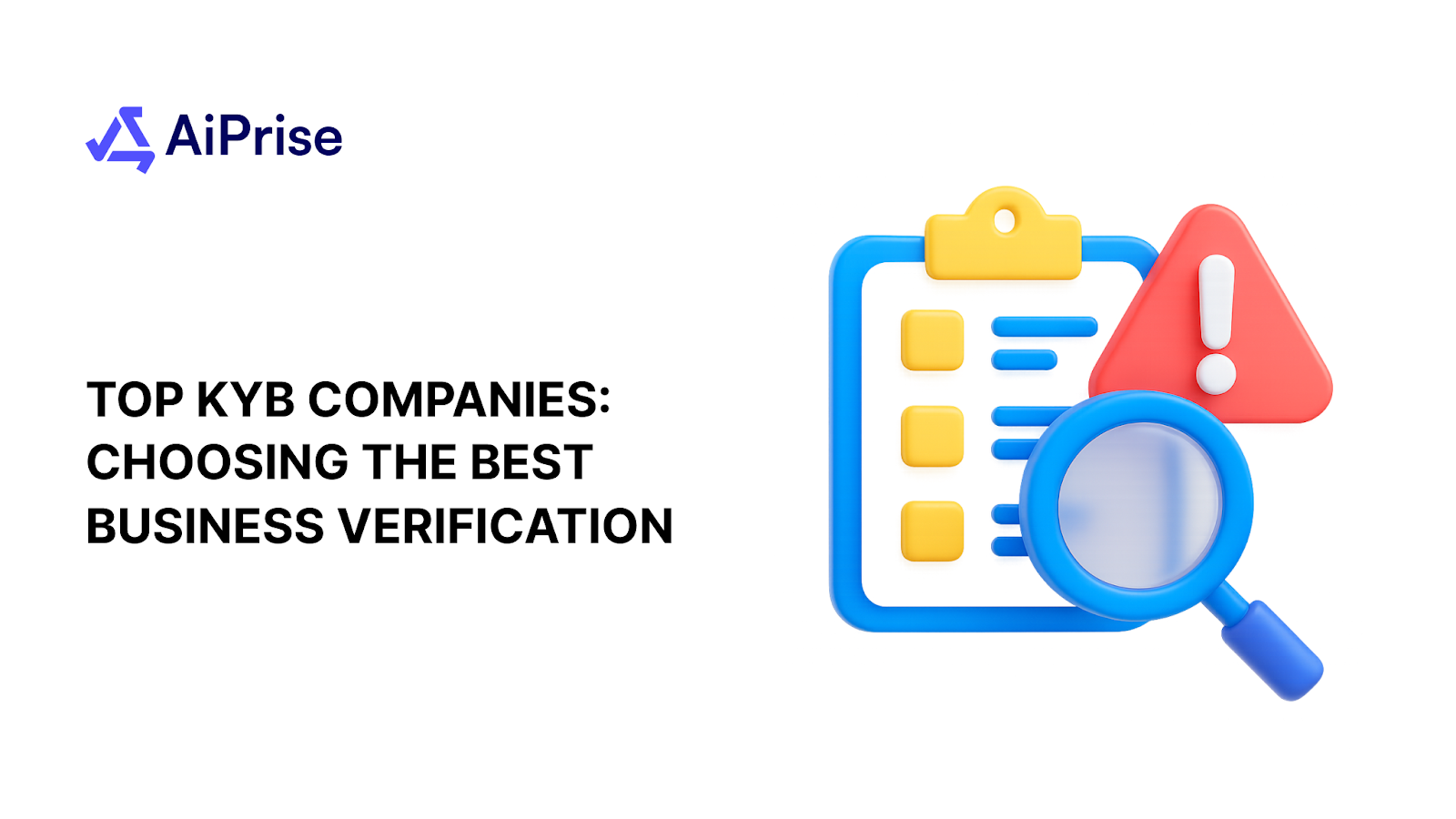
%20Can%20Improve%20Your%20Compliance%20Strategy.png)
